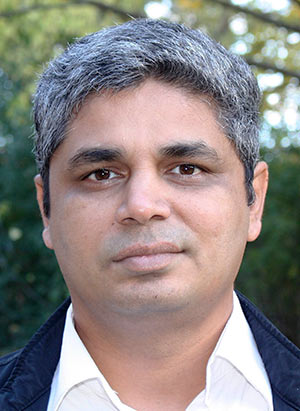Dr. Muhammed Salah Uddin Khan
Health System Impact Fellow Profile

- Name:
- Muhammed Salah Uddin Khan
- Host Partner Organization:
- Public Health Agency of Canada
- Name of Host Partner Organization Supervisor:
- Nicholas H. Ogden
- Location (city, province):
- Guelph, Ontario
- Academic Institution:
- University of Guelph
- Name of Academic Supervisor:
- Amy L. Greer
- Duration of Fellowship:
- 2 years
- Title of Fellowship / Program of Work:
- Modeling the Transmission Dynamics of Chikungunya Virus: Climate Change and Emerging Viral Threats in Canada
- Contact Information:
- Social media page(s): Google Scholar: Salah Uddin Khan
Biography
I completed a PhD in Public Health at the University of Florida to learn more about infectious disease epidemiology and One Health approaches. I received a Grinter Fellowship award, which aims to recruit exceptionally qualified PhD students. I also completed an MSc in Veterinary Public Health and Food Hygiene, and a Doctor of Veterinary Medicine from Bangladesh Agricultural University. In one research project, I demonstrated how Nipah Virus transmission occurred from wildlife hosts to humans and the effectiveness of a low-cost, non-pharmaceutical intervention to prevent such transmission. Later, I was awarded a competitive research grant by National Academy of Science, USA to investigate additional Nipah virus transmission pathways. The Health System Impact fellowship is a dynamic platform that will enable me to work within the public health system using my skills in infectious disease epidemiology, and an understanding of host-pathogen-environment interactions, to and improve public health interventions.
Fellowship Program of Work
The fellowship addresses the Public Health Agency of Canada: National Microbiology Laboratory’s (PHAC-NLM) key mandate to support the prevention and control of infectious diseases that threaten Canadians. Many vector-borne diseases from tropical and sub-tropical regions are likely introduced into Canada by returning infected travelers. With climate change, transmission within Canada will become more likely. Developing a rigorous scientific framework for examining the risk of disease introduction and spread is critical for Canadian public health planning.
We will develop a suite of disease transmission models to simulate the transmission of exotic mosquito-borne diseases in Canada, using Chikungunya virus (CHIKV) as an example. Modeling outcomes will 1) contribute to an improved understanding of the future public health impact of CHIKV, 2) allow for a systematic examination of health interventions, and 3) quantify the resources required to manage the emergence of CHIKV. The outcomes will enable us to assess the risk of locally-sustained transmission of exotic mosquito-borne viruses and the efficacy of currently known interventions. This fellowship also supports PHAC-NML’s long-term goal to contribute to the professional development of skilled individuals to identify, control and prevent infectious diseases.
I am very excited to work with Drs. Nicholas Ogden (PHAC-NML) and Amy Greer (University of Guelph). Both are highly regarded within the scientific community for their research on vector-borne diseases and infectious disease dynamics. The fellowship will enable us to conduct research on a significant public health issue and translate the findings to policies and programs to promote and protect public health in Canada.
- Date modified: